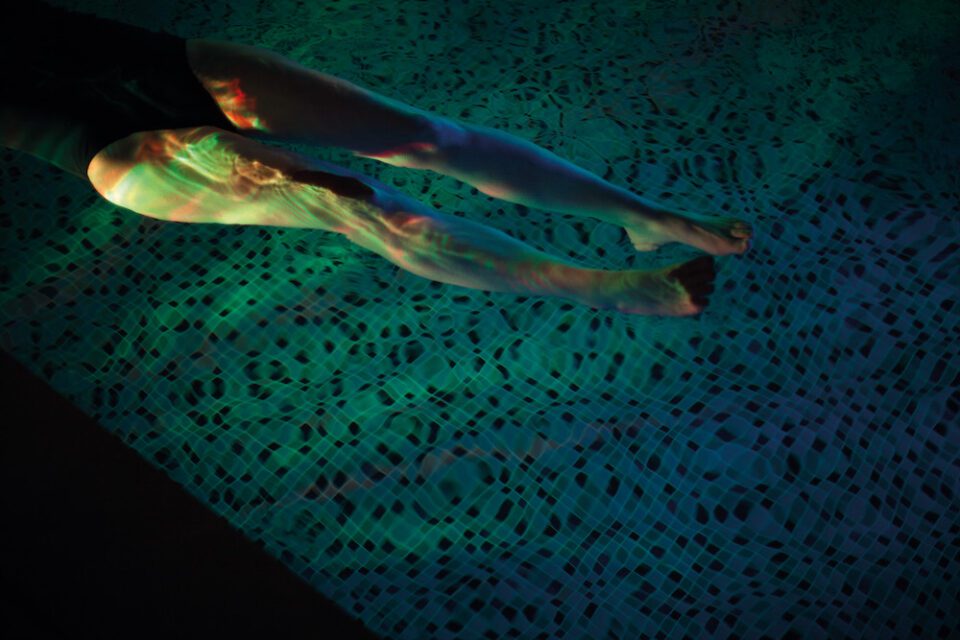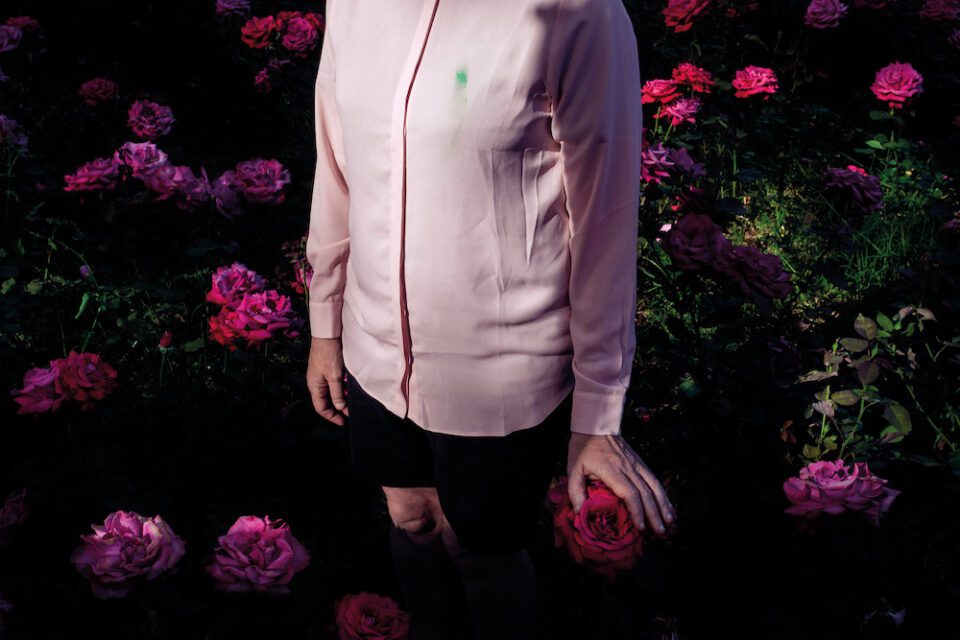“For me, it’s not so much the baring of my body but the baring of my soul in the photos and drawings,” writes Brooklyn-born London-based artist and psychotherapist Jessica Mitchell about Sour Puss: The Opera. Co-created with her friend and Edinburgh-based Portuguese artist Diogo Duarte, the series, created over four years, is a part-fictional, part-biographical account of a woman coming to terms with her sexuality and sense of self. It was a finalist at Portugal’s 2018 Photography Biennial, and was subsequently published as an art book in 2021. The volume comprises photographs of Mitchell taken by Duarte during their travels to Japan and Death Valley in Eastern California, alongside drawings by Mitchell and an afterword by the artists. There’s also an essay by curator and researcher Anna McNay, who calls the book “a lesson in living life” – picking “acceptance” as one of the themes through which to approach it.

Throughout the book, the word “sourpuss” – often defined as “a sullen or bad-tempered person” – shifts from being a personality trait to a character: an amalgamation of both artists and their life experiences. Two things stand out in the series – a certain sadness or exhaustion on Mitchell’s face, and a green stain on her shirt which follows her around, increasing in size. Eventually, “the green tarnish ‘blossoms’ into a green vest”, as McNay observes. Mitchell has been asked several times about why she looks so sad, and about the meaning of the green stain. Her response: “The series is about whatever the onlooker thinks it is about.”

The book touches upon the act of collaboration between two artists, as well as the male gaze, with Duarte asserting that “Jessica is not a muse. She is neither passive nor an object.” Perhaps, most important of all, is the way in which it questions the idea of what constitutes beauty. Some images involve nudity, intending to generate conversation around the representation of all ages and body types. At a time in which our social media feeds are inundated by pictures of filtered and “perfected” faces and bodies, it’s a welcome respite to see “a real woman,” though Mitchell doesn’t consider herself brave for doing so. Incidentally, the last photograph is of Mitchell wearing a green vest, sitting with her eyes closed and a hint of a smile. It’s as though she has found acceptance, not just in the outside world, but within herself. “Photos of me have hung in a museum – my younger self…would be proud and amazed,” she says.

A discussion of Sour Puss: The Opera cannot be complete without mentioning Mitchell’s drawings, which appear towards the end of the book. They have a childlike innocence and a reassuring sense of imperfection – feeding into the idea of acceptance and inclusion. “I hated art classes during school,” Mitchell says, “I was told by teachers I was terrible at it.” The image captions carry messages such as: “why love someone who can’t like you? When it’s hard enough for me to like myself”, “I can hear you, but I can’t listen” and “bad mom” – seemingly turning the drawings into psychological rumination.
Sour Puss: The Opera is published by GOST Books. Find out more here.
Words: Shyama Laxman
Image Credits: All images from Sour Puss: The Opera, courtesy Diogo Duarte and Jessica Mitchell.





